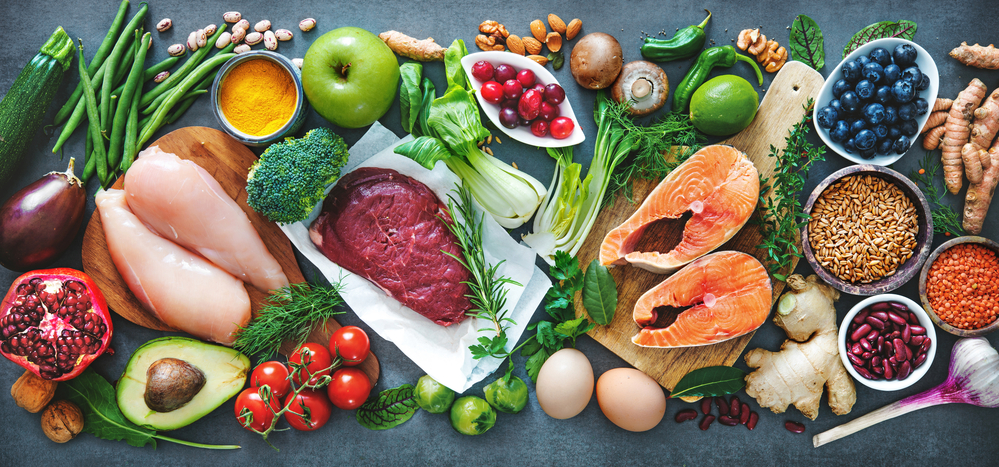Recovery from addiction is a journey of physical, emotional, and mental healing. Among the key pillars of a successful recovery process, nutrition holds a special place. What we eat not only affects our physical health but also our mood and behavior. For individuals recovering from addiction, a balanced diet can significantly aid in the healing process, restoring physical health, and fostering mental well-being.
Table of Contents
ToggleThe Connection Between Nutrition and Recovery
Addiction can take a toll on the body, often leading to nutritional deficiencies and health complications. Substance abuse can disrupt the absorption, metabolism, and utilization of essential nutrients, weakening the immune system and causing organ damage. Integrating nutrition into addiction recovery can help address these issues, promoting physical healing and supporting mental health.
Essential Nutrients for Recovery
Proteins: Vital for repairing body tissues damaged by substance abuse. Sources include lean meats, fish, beans, and nuts.
Complex Carbohydrates: Help stabilize mood and energy levels. Whole grains, fruits, and vegetables are excellent sources.
Vitamins and Minerals: Particular attention should be paid to vitamins A, C, E, and the B vitamins, along with minerals like magnesium and zinc, to support overall health and well-being.
Omega-3 Fatty Acids: Important for mental health, found in fish like salmon and in flaxseeds and walnuts.
Implementing a Recovery Diet
Start with a Healthy Breakfast: Jumpstart the day with a meal rich in complex carbohydrates and proteins.
Hydration: Drinking enough water is crucial for flushing out toxins and promoting healthy bodily functions.
Regular, Balanced Meals: Eating at regular intervals helps maintain blood sugar levels, reducing cravings and mood swings.
Limit Sugar and Caffeine: Both can lead to energy crashes and mood fluctuations.
Consult a Nutritionist: Personalized diet plans can address specific health concerns and deficiencies.
Challenges and Strategies
Adopting a new diet can be challenging, particularly during the early stages of recovery when cravings and old habits are strongest. It’s important to approach these changes gradually, focusing on making sustainable shifts rather than drastic overhauls. Setting realistic goals, seeking support from professionals and peers, and celebrating small victories can all contribute to lasting change.
The Impact of Nutrition on Mental Health
A nutritious diet does more than just strengthen the body. It also plays a crucial role in mental health, affecting mood, energy levels, and cognitive function. For those in recovery, the psychological benefits of a healthy diet can be profound, offering a sense of control and contributing to a positive outlook on life.
Conclusion
Integrating nutrition into addiction recovery is not just about eating well—it’s about rebuilding and healing from the inside out. With each nutritious meal, individuals in recovery can take a step towards regaining their health, stabilizing their mood, and strengthening their resolve to live a substance-free life. Embracing nutrition as part of the recovery journey can pave the way for a brighter, healthier future.
In closing, it’s clear that nutrition plays a fundamental role in the recovery journey from addiction. By fueling our bodies with wholesome foods rich in nutrients, we not only support physical health but also nurture our mental and emotional well-being. Through this blog series, we’ve explored how nutrition impacts mood, energy levels, and overall resilience in recovery. We’ve learned about the importance of balanced meals, hydration, and mindful eating practices in promoting optimal health and aiding in the healing process.
At Renew Health, we believe in taking a holistic approach to addiction recovery, and that includes addressing the nutritional needs of our patients. Our goal is to empower individuals with the knowledge and tools they need to make informed choices about their diet and lifestyle, setting the stage for lasting sobriety and well-being. By incorporating nutritious foods into their daily routine and cultivating a positive relationship with food, our patients can enhance their recovery journey and pave the way for a brighter, healthier future.
Let’s remember that nourishing our bodies with nutritious foods is not just about physical sustenance—it’s a form of self-care and self-respect. By prioritizing nutrition as a vital component of recovery, we can fuel our bodies, minds, and spirits, unlocking our full potential for growth, healing, and transformation. Here’s to embracing the power of nutrition in recovery and living our healthiest, happiest lives.




